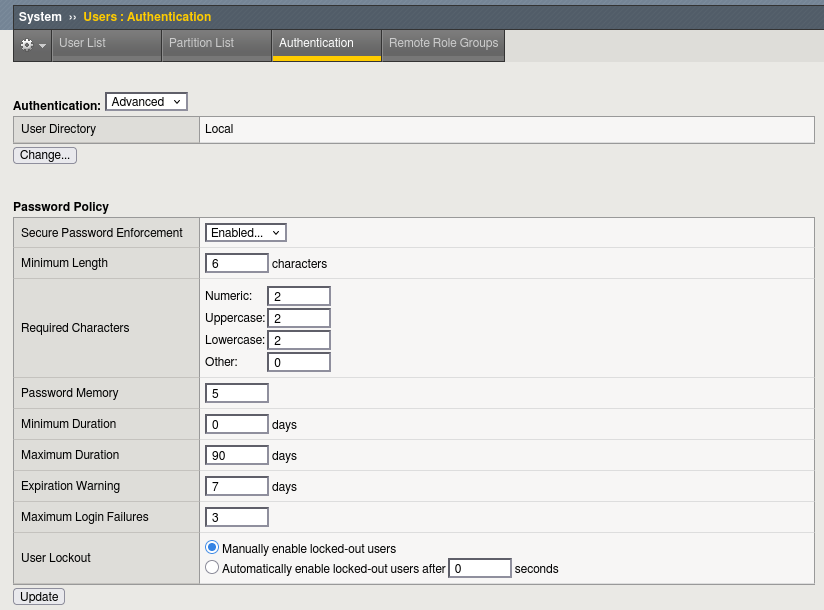Exam Topics
- F5CAB1
- F5CAB1.01
- Secure Password Policies
- F5CAB1.01
What Are Secure Password Policies?
Secure Password Policies define a set of rules and restrictions that govern how passwords are created and maintained. These policies fall into two main categories:
Enforcement Restrictions
These ensure that a password is strong enough to resist attacks. You can configure a combination of the following requirements:
- Minimum Password Length : Set the minimum number of characters required.
- Character Complexity : Define the minimum number of:
- Uppercase letters
- Lowercase letters
- Numeric digits
Policy Restrictions
These prevent passwords from being used indefinitely, reducing the risk of compromised accounts. Key options include:
- Minimum Duration : The minimum number of days a password must be kept before it can be changed again.
- Maximum Duration : The maximum number of days a password remains valid before it must be changed.
- Password Memory (History) : Prevents users from reusing previous passwords. The system stores a configurable number of past passwords for comparison.
- Account Lockout
- An account can be locked after a specified number of failed login attempts.
- The lockout can be removed automatically after a set time or manually by an administrator.
This combination of enforcement and policy restrictions ensures that passwords remain strong and are rotated regularly, providing another critical layer of security on top of network-based controls.
How to configure Secure Password Policies
The Secure Password Policies is configurable using the Configuration Utility.
This can be done going into the System → Users → Authentication menu.
In this Menu, Configure the desired values.

Managing Locked Accounts
Locked user accounts are displayed in the User List within the Configuration Utility.

To unlock a user, simply select the account and click the Unlock button.
Conclusion
Implementing Secure Password Policies on your BIG-IP system is essential to protect against unauthorized access and brute-force attacks. By enforcing strong password complexity, setting expiration rules, and configuring account lockout policies, you significantly reduce the risk of compromised accounts. Combined with other hardening measures like Port Lockdown and daemon ACLs, this ensures that your BIG-IP management access remains secure and compliant with best practices.
Explore the other topics in the F5CAB1 exam blueprint ?